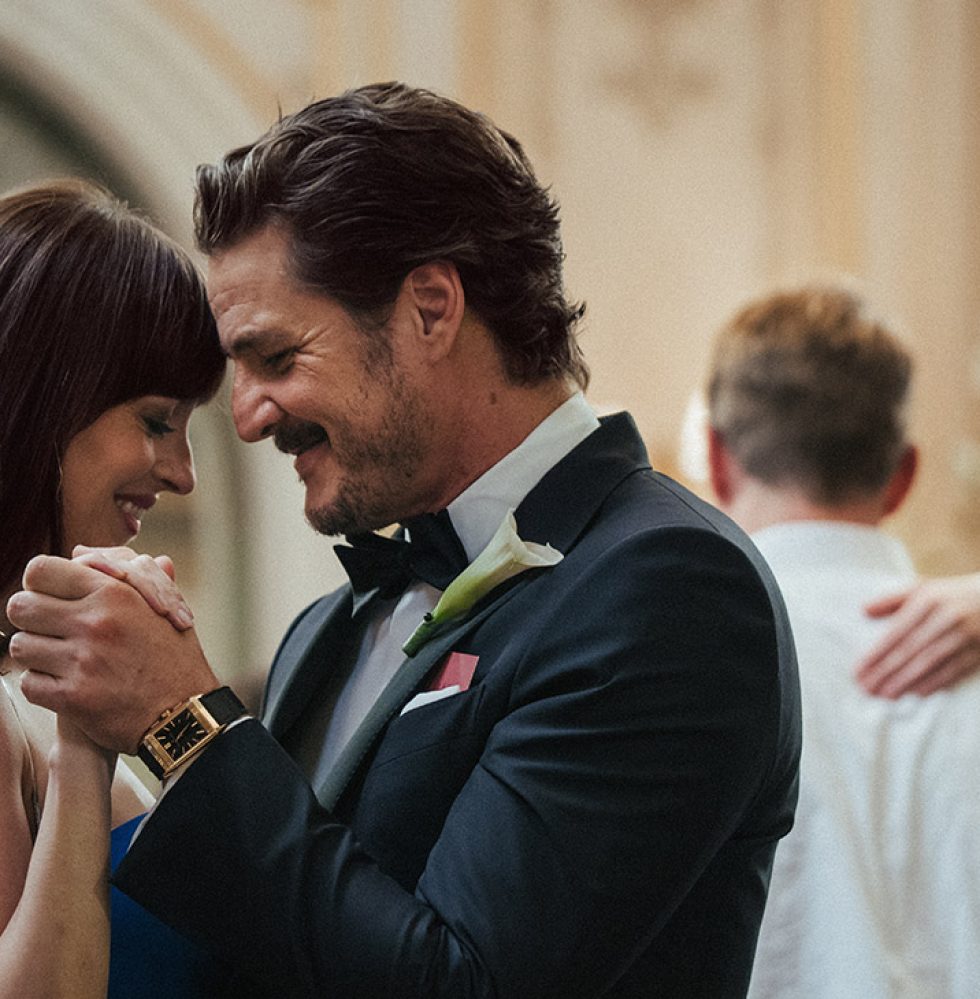
If you watched the trailer for Materialists with sinking expectations while thinking, “Wait, the director of the exquisite Past Lives made this utterly generic rom-com?!” — come on, you know you did — you can breathe a sigh of relief. Deceptive marketing aside, playwright turned filmmaker Celine Song’s assured second feature is a refreshingly complex look at modern love, self-worth and the challenges of finding a partner in an unaffordable city, which once again treats three points of a romantic triangle with equal integrity and compassion.
There’s much talk about unicorns in the dating field in Song’s script, and her film could be called the same — a glossy, good-looking drama veined with humor, introspection and questioning intelligence, driven as much by insightful writing as star charisma. Not that those stars don’t bring a lot to the table, especially Dakota Johnson, doing her best work since The Lost Daughter.
Materialists
The Bottom Line
Mercifully, more Nicole Holofcener than Nancy Meyers.
Release date: Friday, June 13
Cast: Dakota Johnson, Chris Evans, Pedro Pascal, Zoë Winters, Marin Ireland, Louisa Jacobson
Director-screenwriter: Celine Song
Rated R,
1 hour 56 minutes
Johnson stars as Lucy, a matchmaker with a strong track record at Adore, a high-end firm that specializes in finding partners for well-heeled New Yorkers, ameliorating the risks of playing the field unassisted. The profession instantly sparks thoughts of a cute Jane Austen throwback, but one of the distinguishing qualities of Materialists is the way that Song, who worked at a dating agency while getting her theater career off the ground, treats it as a real job. And a demanding one in such a famously competitive city.
The writer-director finds a playful entry point by starting not in Manhattan but in a majestic rocky landscape where the only signs of life are a hot caveman returning from foraging and placing a makeshift ring on the finger of the woman waiting for him. Unless there’s a Cro-Magnon stylist at work somewhere, his meticulously trimmed beard is a giveaway that this fanciful prologue is the product of someone’s marriage-obsessed imagination.
Romantic unions generally prove more complicated in present-day New York, where Lucy’s consultation with a pair of clients she matched suggests the gulf in partner requirements that can yield two radically different responses to the same first date.
“I would never swipe right on a woman like her,” says the guy indignantly, pointing out the ways in which she didn’t quite adhere to her profile. The woman, Sophie (Zoë Winters), thought the date went gangbusters. She’s appalled to learn that she didn’t measure up, despite being willing to overlook his shortcomings in terms of height, hairline and salary level. “I’m just asking for the bare minimum,” she fumes. “I’m trying to settle!”
Similar amusing consults are intercut throughout, usually from Lucy’s P.O.V. and showing only the client. There’s the expected representation of middle-aged men whose chief requirement is fit (no one with a BMI over 20), attractive and with a cut-off age around 29. But Song refuses to stack the deck, including a comparable number of women whose rigid demands significantly narrow the market.
One such woman is Lucy herself, who seems to have made peace with being single, given how hard it is to snag a dude who’s smart, handsome, in shape and earning north of $500K a year. Those men, in her game, are known as unicorns. The beauty of Johnson’s performance is the light touch she brings to that calculation, never letting Lucy be reduced to an off-putting gold-digger, even if her approach to marriage is that of a business deal in which the terms must be right.
Despite the odds against making matches that stick, she has managed to notch up an impressive nine weddings of clients she connected. That makes her the star of the all-female firm and the MVP of her savvy boss Violet (Marin Ireland), who observes that working with the loneliness and rejection of their clients makes them better than therapists.
Lucy also has a gift for talking brides with cold feet off ledges, as evidenced when her latest success story, Charlotte (Louisa Jacobson), balks on her wedding day. When Charlotte, in a very funny moment, reveals the true reason she wants to marry her fiancé, Lucy turns that unflattering confession into a soothing reassurance about the bride’s right to feel valued.
At that same wedding, Lucy catches the eye of the groom’s brother, Henry (Pedro Pascal), as she’s casually putting out feelers for new clients. But he’s more interested in her than her service. A brief, flirty exchange at the singles table reveals Henry to be the complete package — suave, witty, affluent and well put-together, or as Lucy puts it, “a unicorn.” He’s perceptive about the tricky balance of her role as a matchmaker, never making her clients feel they need her but positioning herself as a luxury good: “If they can afford you, why not?”
Just as Lucy and Harry start hitting it off, however, her ex, John (Chris Evans), a struggling actor making ends meet as a cater-waiter, interrupts. Their subsequent conversation during his break suggests lasting affection on both sides. But Lucy is a pragmatist, recalling an anniversary fight with John when they were broke and unhappy. Since he’s still driving the same clapped-out car and sharing the same run-down apartment with two annoying roommates, John’s stock remains low.
That’s not a problem when Lucy starts dating Harry, even if it earns her some side-eye from an Adore colleague for taking a unicorn off the market. Without drifting into trite rom-com territory, Song illustrates the seductiveness — especially in a city where the wealth divide is as chasmic as New York — of swanky restaurant meals with a date who picks up the check with barely a glance, arrives with an armful of flowers, owns a $12 million penthouse and asks where in the world she would most like to go, not as a hypothetical but an invitation. What elevates the movie is that all this stuff of airy romantic fantasy stays unexpectedly grounded in the real world.
Perhaps taking a cue from Joachim Trier’s inspired use of Harry Nilsson on the soundtrack of another not-quite-rom-com, The Worst Person in the World, Song plays out those honeymoon-phase scenes to “I Guess the Lord Must Be in New York City,” one of a handful of choice needle-drops. (Not least among them is the great John Prine’s duet with Iris DeMent, “In Spite of Ourselves,” a wryly optimistic song about love overcoming incompatibilities.)
Even as the movie settles into a predictable pattern of Lucy being torn between two men offering her very different futures, it’s never simplistic. When Lucy tells Harry he could land a 25-year-old, he says he’s looking for “intangible assets,” not material wealth, of which he has plenty.
Song’s script avoids glibness in dealing with the transactional aspects of partnering and the commodification of certain attributes. There’s a frankness here that’s refreshing as Materialists explores ideas of personal value and increasing one’s worth — including via the obvious path of cosmetic surgery.
Some might find the introduction of a major conflict — when a different date turns nightmarish for Sophie, causing Lucy to question her certainties about what makes a good match and berate herself for failing to spot red flags — to be a heavy-handed nudge toward a resolution. But there’s no arguing with the effectiveness of a beautifully played scene between Winters and Johnson that builds to a shattered but furious Sophie calling Lucy a pimp.
Each of the three leads has moments of raw tenderness, fragility, even fear that add depth to the drama. Johnson plays Lucy’s disillusionment as something bone-deep, almost lacerating, not just a crisis of conscience; Pascal reveals the underlying sadness and self-doubt hiding behind Harry’s smooth veneer; and perhaps best of all, Evans distills a key theme of the movie when John questions whether he’s worthless and disposable, his words not too distant from Sophie’s.
Especially for someone relatively new to filmmaking, Song’s thoughtfulness as a writer is matched by unerring instincts as a director — nailing the balance between tonal variation and fluidity; getting superb work out of her actors; making judicious use of Daniel Pemberton’s gentle, melancholy score; and delivering a sweet, satisfying ending that keeps a lid on the sentiment.
That this wrap-up happens on the stoop of an apartment building provides a nice callback to Past Lives. It also establishes that Materialists, like its predecessor, is every inch a New York movie, an aspect enhanced by the light and textures of cinematographer Shabier Kirchner’s crystalline visuals.



